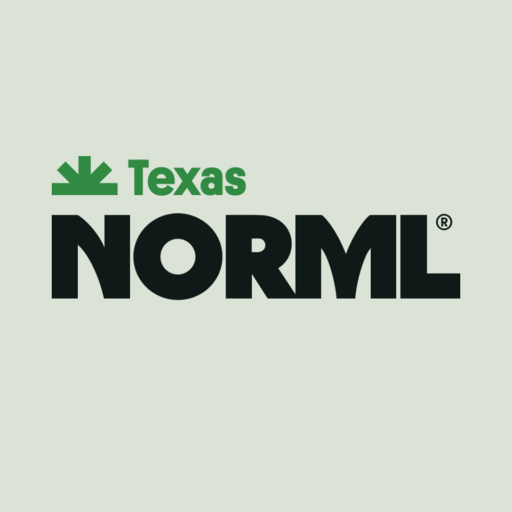My Fox Austin:”Suicide Disease” Causes Intense Pain
December 12, 2011
NY TIMES Op-Ed Piece: Jurors Need to Know That They Can Say No
December 21, 2011
From NORML.org:
Study: Inhaled Cannabis Modulates Appetite Hormones In HIV Patients
‘False Alert’ Rate For Drug Dogs Tops 80 Percent
House Lawmakers Vote In Favor Of Federal Legislation Outlawing So-Called ‘Synthetic Cannabis’
Recent Action Alerts:
Wisconsin Legislature to Consider Medical Marijuana Measure
Tell The Obama Administration to Halt Its Attack on Medical Marijuana
Tell Your Representatives to Co-Sponsor HR 2306: The Ending Federal Marijuana Prohibition Act of 2011
Study: Inhaled Cannabis Modulates Appetite Hormones In HIV Patients
San Diego, CA: Cannabis inhalation is associated with increased levels of appetite hormones in the blood of subjects with HIV infection, according to clinical trial data published online in the scientific journal Brain Research.
Investigators at the University of California, San Diego and the Center for Medicinal Cannabis Research assessed the effects of inhaled cannabis on the appetite hormones ghrelin, leptin and peptide YY (PYY), as well as insulin, in adult subjects with HIV.
Insulin, ghrelin, PYY, and leptin are hormones individually modulated in response to food intake and energy homeostasis.
Researchers reported: “Compared to placebo, cannabis administration was associated with significant increases in plasma levels of ghrelin and leptin, and decreases in PYY, but did not significantly influence insulin levels. … Cannabis-related changes in these hormones had a magnitude similar to what has been observed with food intake over the course of a day in normal volunteers, suggesting physiological relevance.”
They concluded, “These findings support further evaluations of interventions directed at manipulating the endocannabinoid system for the treatment of eating disorders and obesity.”
For more information, please contact Paul Armentano, NORML Deputy Director, at: [email protected]. Full text of the study, “A pilot study of the effects of cannabis on appetite hormones in HIV-infected adult men,” appears in Brain Research.
‘False Alert’ Rate For Drug Dogs Tops 80 Percent
Sydney, Australia: Some 80 percent of drug dog ‘alerts’ in New South Wales in 2011 yielded no illicit substances, according to state government statistics published this week by the Sydney Morning Herald.
According to the paper, in the first nine months of 2011, “14,102 searches were conducted after a dog sat next to a person, indicating they might be carrying drugs. But, in 11,248 cases, no drugs were found.”
Statistics for 2010 showed a similarly high false positive rate. Of the 15,779 searches conducted after police-dog identification, no drugs were found in 11,694 cases, the Herald reported.
The statistics were made public following a Parliamentary inquiry regarding the widespread use of drug dogs.
Despite the high error rate, a spokesman for the NSW Police Minister said that the government “fully supported the use of dogs because police had found them effective.”
Earlier this year, a study published in the scientific journal Animal Cognition reported that the performance of drug-sniffing dogs is significantly influenced by whether or not their handlers believe illicit substances are present.
In 2004, the United States Supreme Court ruled in Illinois v. Caballes that an alert from a police dog during a traffic stop provides a constitutional basis for law enforcement to search the interior of the vehicle.
For more information, please contact Keith Stroup, NORML Legal Counsel, at (202) 483-5500.
House Lawmakers Vote In Favor Of Federal Legislation Outlawing So-Called ‘Synthetic Cannabis’
Washington, DC: Members of the US Congress, House of Representatives voted 317 to 98 last week in support of HR 1254, the Synthetic Drug Control Act. The act criminalizes the possession or use of “any substance that is a cannabinoid receptor type 1 agonist” by classifying all such substances as Schedule I prohibited drugs under federal law “unless [the substance is] specifically exempted or … listed in another schedule.”
If passed, the measure would prohibit under federal law the possession and sale of chemical agents contained in so-called ‘fake’ herbal marijuana products, commonly sold over-the-counter under the brand names ‘K2’ and ‘Spice.’
The measure now awaits action in the Senate.
Senate companion legislation, S. 605, also remains pending.
In March, the US Drug Enforcement Administration (DEA) exercised its ’emergency scheduling authority’ to criminally prohibit the possession and sale of several of the synthetic cannabinoids contained in over-the-counter products such as Spice.
Commenting on the Congressional vote, NORML Deputy Director Paul Armentano said, “The growing popularity of these synthetic cannabinoid products is a predictable outgrowth of criminal marijuana prohibition. As prohibition is apt to do, it has driven the production of a commodity into the hands of unregulated, unknown dealers, driven up the potency of the commodity, and in doing so created a scenario where the consumer is faced with a potentially greater health risks than they would be had they simply had the legal choice to use the product they actually desired, in this case cannabis.”
He added, “No doubt the consumption of some of these unregulated products may pose risks to the consumer. However, it is hard to fathom that these potential risks will be lessened by further driving the products underground as opposed to regulating thereby allowing for the opportunity for quality control, laboratory testing, labeling, and human trials.”
For more information, please contact Paul Armentano, NORML Deputy Director, at: [email protected] or Keith Stroup, NORML Legal Counsel, at (202) 483-5500.
NORML and the NORML Foundation: 1600 K Street NW, Mezzanine Level, Washington DC, 20006-2832
Tel: (202) 483-5500 • Fax: (202) 483-0057 • Email: [email protected]


